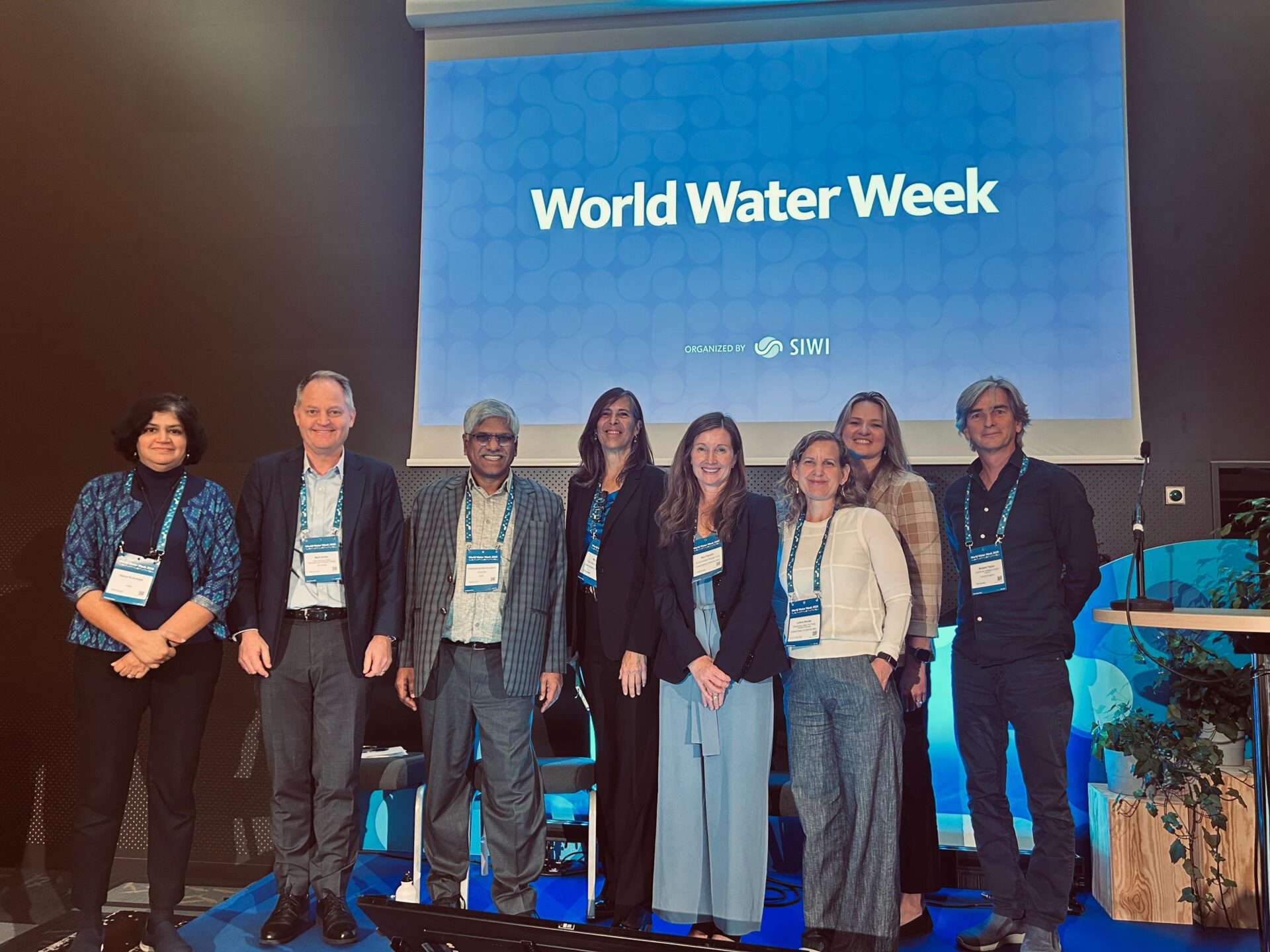Water, Food, and Climate: A Story from World Water Week 2025
/
- This blog is based on an original event report by Veena Srinivasan, Richard Taylor and Pavan Srinath.
At World Water Week 2025, the CLARITY Consortium brought together a diverse group of experts, policymakers, and practitioners to explore one of the most pressing challenges of our time: how agriculture can respond to climate change while safeguarding water resources. The seminar, titled Water for Food in a Changing Climate, unfolded as a journey through ideas, experiences, and imagined futures.
The conversation began by challenging a familiar divide—adaptation versus mitigation. Agriculture, often seen as both a contributor to climate change and a victim of its effects, was reframed as a sector where integrated solutions could address adaptation and mitigation goals. Stories emerged from across the globe: the potential for solar-powered irrigation systems to transform farming in Africa and Asia, rice-farming techniques reducing methane emissions, and peatland restoration efforts in Sweden storing carbon while reshaping landscapes.
Check out this video of Professor Yahaya discussing the prospects of solar irrigation in Niger – Professor Yahaya @SIWI WWW2025 He outlines both the promise and the challenges of this approach, highlighting the high upfront costs but also the region’s abundant solar potential and the opportunity for long-term growth.

As the seminar progressed, attention turned to the systems that shape these solutions. Policies, governance structures, and institutional capacity were examined not as abstract concepts but as living frameworks that determine whether good ideas take root. Participants reflected on how essential it is to align water, agriculture, and climate policies, and on the need for transparency and community engagement. Lessons from California’s groundwater management and Africa’s pastureland conservation offered both caution and inspiration. Dr. Mark Smith captured the mood when he said, “Water for food must be a top priority in climate discussions,” pointing to the disconnect that still exists between global agendas.

The seminar’s final session took a creative turn, inviting participants to step into the shoes of decision-makers in two fictional regions – Northia and Southia. These regions, set in semi-arid landscapes with hard-rock aquifers and extreme summer temperatures, served as mirrors to real-world challenges in tropical Africa and South Asia.
Participants were divided into four groups, each tasked with exploring one of two pathways for their assigned region. In Northia, a region just beginning to tap into its groundwater potential, the groups debated whether solar-powered irrigation or large-scale surface water development would offer the most sustainable path forward. Farmers in Northia were eager to access affordable irrigation to improve their incomes, but only a small fraction had access to wells. Borewell technology was seen as aspirational, and the promise of solar energy sparked hope—but also raised questions about cost, regulation, and long-term sustainability.


Southia, on the other hand, was grappling with the consequences of overexploited groundwater. Here, the debate centered around whether to introduce groundwater permitting and pricing or to invest in new surface water infrastructure. With borewells drilled to depths beyond 250 metres and rising energy costs bankrupting utilities, the region faced a crisis of diminishing returns. Farmers were locked into water-intensive cropping patterns, and the subsidized electricity that once enabled growth now threatened the system’s viability.

Through role-play and the Futures Wheel method, they explored the consequences of different irrigation and energy strategies. What began as a simulation quickly revealed real-world dilemmas: the risks of groundwater depletion, the costs of solar energy, and the long-term impacts of soil management.
The twist? Northia and Southia weren’t fictional at all! They mirrored the realities of tropical Africa and South Asia, making the exercise all the more relevant and urgent.

By the end of the seminar, one thing was clear – CLARITY’s approach grounded in cross-sectoral dialogue, local water monitoring, and flexible, time-sensitive interventions – was not just relevant but essential. The consortium’s ongoing engagement with institutions like the World Bank and the Nile Basin Initiative underscored the growing momentum behind its work. World Water Week 2025 didn’t just offer answers; it sparked new questions, built connections, and reminded everyone in the room that the future of water and food depends on how well we listen, collaborate, and act.
Categories
Countries
CLARE Pillars
CLARE Themes
CLARE Topics
Published
CLARE Projects
CLARE Partners


